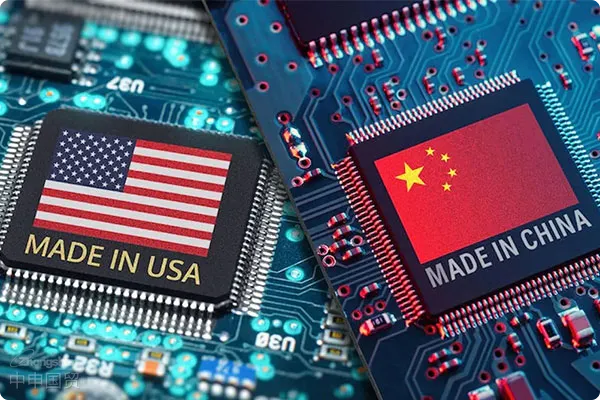- Shanghai Zhongshen International Trade Co., Ltd. - Two decades of trade agency expertise.
- Service Hotline: 139 1787 2118
Background and objectives of the expanded rule
According to Reuters, the Biden administration plans to expand the scope of the Foreign Direct Product Rule (FDPR) to include more Chinese semiconductor companies. This rule, first introduced in 1959, grants the U.S. government control over its technology trade, including products manufactured in other countries that use U.S. technology or components. Under this rule, the Biden administration previously prohibited foreign companies from exporting chip manufacturing equipment and advanced chips to China that used U.S. technology or components.

Affected countries and regions
The expanded rule will cover more Chinese semiconductor companies, but related companies in over 30 countries and regions, including Japan, Germany, and South Korea, will not be affected. However, companies in Malaysia, Singapore, Israel, and China Taiwan were not exempted. This selective approach suggests the expansion is more symbolic, serving as a political tactic by the Democratic Party to criticize China ahead of the U.S. presidential election.
The U.S. Commerce Department explained that exemptions are based on diplomatic relations, security concerns, and other factors. Thus, Malaysia and Singapore may have been excluded due to their close ties with China, while China Taiwan was omitted due to cross-strait tensions and U.S. policy toward Taiwan. Israels exclusion may stem from its reliance on Biden administration support amid Middle East tensions.
Reactions from U.S. allies
This move by the Biden administration also reflects the stance of U.S. allies toward its chip war with China. Increasingly, U.S. allies are distancing themselves from the administrations China policies. The latest U.S. actions on chips demonstrate that the chip alliance has failed to curb Chinas high-tech advancements. Instead, it reveals the collapse of the united front meticulously built by the Biden administration over the past three years.
In reality, companies from Japan, the Netherlands, and South Korea have sought ways to circumvent U.S. coercion in recent years, steadily increasing chip trade with China. This may be one reason prompting the Biden administration to expand the FDPR: allowing these companies to trade with China to save some face.
Impact on the market
Following the exemption news, stocks of companies like ASML and Tokyo Electron rose, reflecting positive market sentiment. This indicates that the chip iron curtain the U.S. painstakingly imposed on China is nearing its end, boosting market confidence. The Biden administration not only attempted to coerce allies to contain China but also exploited allies by playing the China card. However, the rise and fall of the chip iron curtain clearly validates this point.
Impact on U.S. companies
Domestic U.S. chip manufacturing equipment producers such as NVIDIA and Lam Research will inevitably become victims of U.S. policies. When these companies are absent, competitors from over 30 other developed countries will seize their considerable market share in China. This will further weaken the competitiveness of U.S. enterprises in the global semiconductor market and may negatively impact Americas own high-tech industry.
Future challenges and opportunities
With the expansion of the Foreign Direct Product Rule, Chinese semiconductor companies will face new challenges. However, this also presents an opportunity for Chinese firms to drive technological innovation and supply chain diversification. By increasing R&D investment and enhancing independent innovation capabilities, Chinas semiconductor industry can reduce reliance on U.S. technology and equipment, gradually achieving technological self-reliance.
Meanwhile, China can strengthen cooperation with other countries and regions to identify alternative suppliers and technical partners, building a more stable and diversified supply chain system. This will not only enhance the international competitiveness of Chinas semiconductor industry but also promote the healthy development of the global semiconductor sector.
Related Recommendations
Contact Form
? 2025. All Rights Reserved. 滬ICP備2023007705號-2  PSB Record: Shanghai No.31011502009912
PSB Record: Shanghai No.31011502009912









